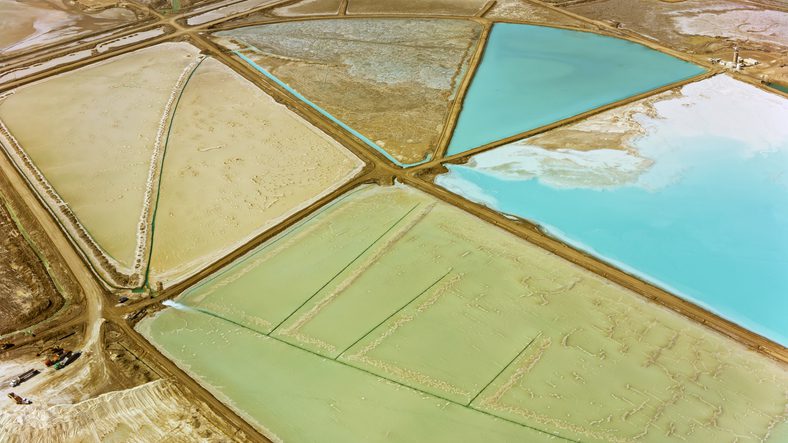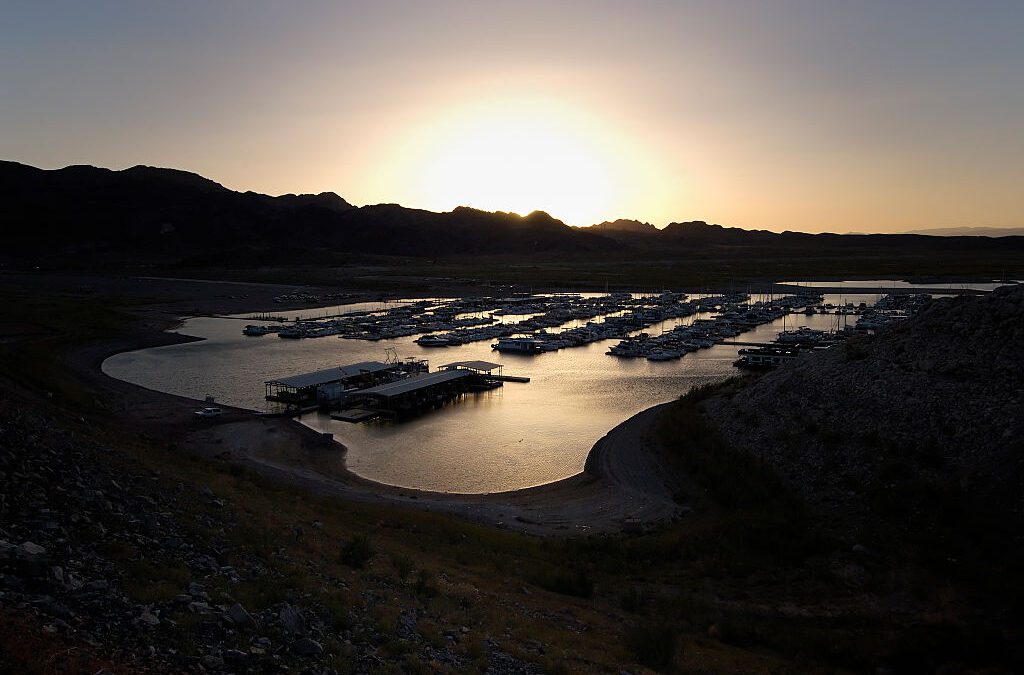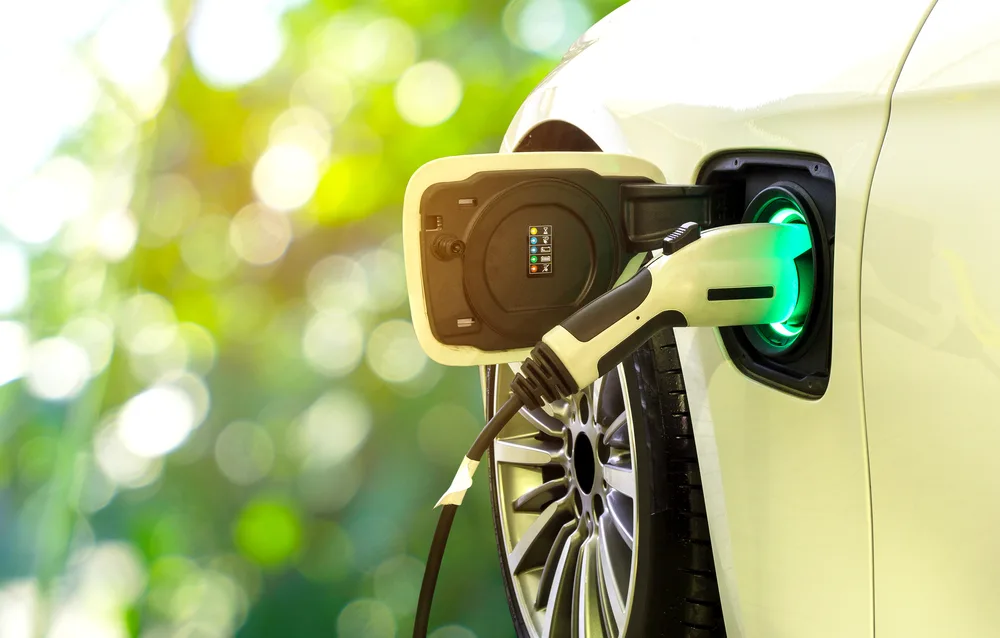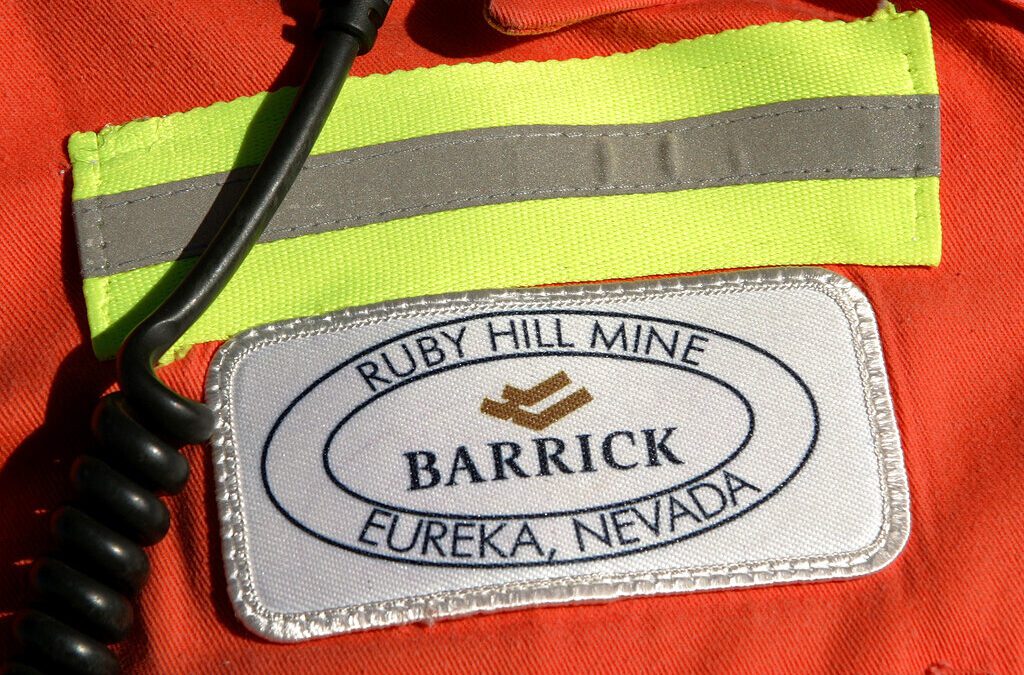
Aerial view of turquoise coloured pools at Silver Peak Lithium Mine, Nevada, California, USA.
Amid the excitement around the shift to clean energy, a critical issue remains overlooked: community engagement in resource extraction. As the demand for lithium surges—ushering in what many are calling a new “Lithium Rush”—there’s a risk of repeating the same harmful patterns seen during uranium extraction decades ago. To create a truly just transition, it’s time to ensure that the voices of affected communities are at the forefront of decision-making.
During the Cold War, the United States rushed to extract uranium, often exploiting Indigenous lands, particularly in the Navajo Nation, without adequate protections or input from local communities. The aftermath has been devastating: contaminated water sources, widespread health issues, and economic disempowerment. For the Navajo Nation, the burden of uranium mining lingers to this day—decades after the extraction boom ended. The lesson is clear: without meaningful community involvement, the transition to clean energy can replicate the same environmental and social injustices of the past.
Today, as lithium becomes central to clean technologies like electric vehicles and energy storage, the same communities once harmed by fossil fuel extraction now find themselves on the frontlines of mineral mining. A recent case in Imperial, California, underscores this reality. Residents raised serious concerns about water use, air pollution, and health risks linked to lithium extraction. However, discussions have largely centered on technical aspects, leaving these pressing community priorities on the margins.
This cycle of sidelining communities must be broken. A just transition demands more than just green technologies; it requires collaboration, transparency, and shared decision-making. For starters, policymakers must engage communities from the outset, not as an afterthought. Residents should have a real say in shaping resource development, and local priorities should guide research, regulations, and sustainability strategies. Data on water use, emissions, and economic impacts must be transparent and accessible to ensure accountability.
Equity isn’t just an ethical imperative—it’s a practical necessity. To distribute the burdens and benefits of the energy transition fairly, we need a national plan that ensures frontline communities are involved in the creation of policies that impact them. This includes incorporating local knowledge into regulatory frameworks and using federal resources to support state and community-led initiatives. It’s time to think beyond extraction and toward community empowerment.
The clean energy movement is a chance to get it right. By placing affected communities at the center, we can ensure the energy transition is both sustainable and equitable, avoiding the missteps of past resource rushes. The success of the clean energy era depends on whether we choose collaboration over exploitation. And the first step toward that future is to ensure that every community has a seat at the table.

Condena Chispa Nevada el retiro de apoyo en su pago de electricidad a familias de bajos ingresos
Chispa Nevada condena que la administración Trump retire ilegalmente el financiamiento del programa de Nevada para reducir las facturas de...

Biden admin moves to shield Nevada public lands from mining with support of tribes, local leaders
In one of President Biden’s last moves in office, his administration has moved to protect 269,000 acres of public land in Nevada from a proposed...

Many fear help for Nevada water conservation will dry up under Trump
Despite billions from the Inflation Reduction Act going to benefit Nevada, President-elect Donald Trump and conservative fiscal hawks may pursue a...

Grant from Biden infrastructure law to help install 185 EV charges around Las Vegas valley
A $3.2 million grant from the US Department of Transportation will help fund and install electric vehicle charging stations in primarily...

Almost 500 people have died from extreme heat in Las Vegas in 2024, officials say
Factors relating to extreme heat accounted for 491 deaths and more than 3,500 emergency room visits, according to Clark County officials, as Las...

Nevada gold mining venture selected for $95M solar project
After being awarded a federal grant to help decarbonize the mining industry, Nevada Gold Mines hopes to build two on-site solar panel and battery...





